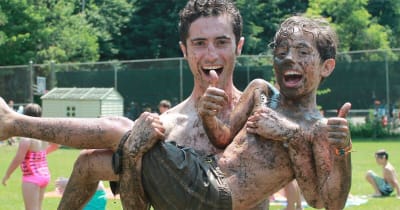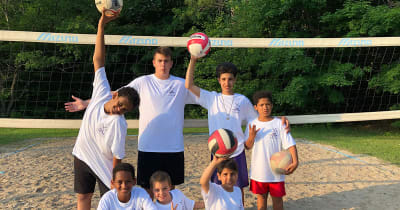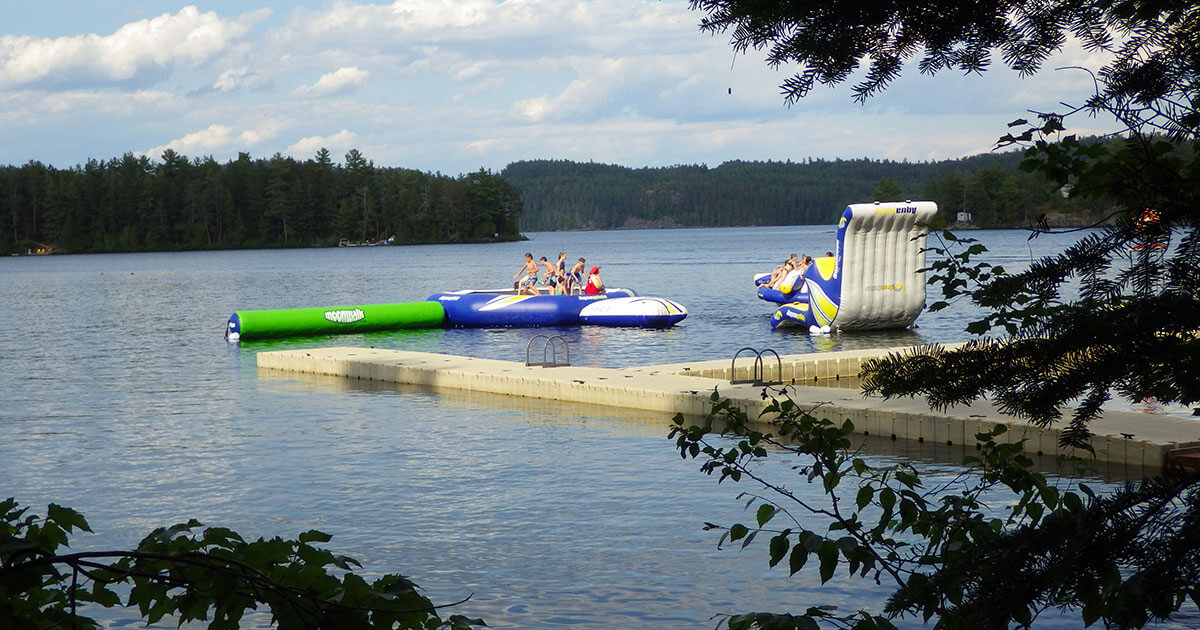- Day camp
- Uptown, Toronto
- Age 4 to 16 (Coed)
TorontoUptownUptownOntario
With countless activities for children (4-12) and LIT programs for teens (13-16), there’s something for everyone! Visit website
| TAC - Sports, Aquatics and Education | 90 | 4-16 | 2024-07-012024-08-01 | ,154,5,22,257,259,258,165,287,37,339,286,292,10,9,173,355,123,333,364,177,300,304,180,67,159,68,351,344,2,278,88,91,366,33,275,160,24,97,357,50,182,130,316,144,267,317,314,268,321,1,8,3,224,12,347,54,58,63,21,27,74,260,56,322,188,0,181,daycamp,coed, |
- Day camp
- Whitby, ON
- Age 4 to 16 (Coed)
WhitbyOntario
With countless activities for children (4-12) and LIT programs for teens (13-16), there’s something for everyone! Visit website
| TAC - Sports, Aquatics and Education | 90 | 4-16 | 2024-07-012024-08-01 | ,154,5,22,257,259,258,165,287,37,339,286,292,10,9,173,355,123,333,364,177,300,304,180,67,159,68,351,344,2,278,88,91,366,33,275,160,24,97,357,50,182,130,316,144,267,317,314,268,321,1,8,3,224,12,347,54,58,63,21,27,74,260,56,322,188,0,181,daycamp,coed, |
- Day camp
- North-York, Toronto
- Age 4 to 16 (Coed)
TorontoNorth-YorkNorth-YorkOntario
With countless activities for children (4-12) and LIT programs for teens (13-16), there’s something for everyone! Visit website
| TAC - Sports, Aquatics and Education | 110 | 4-16 | 2024-08-01 | ,154,5,22,257,259,258,165,287,37,339,286,292,10,9,173,355,123,333,364,177,300,304,180,67,159,68,351,344,2,278,88,91,366,33,275,160,24,97,357,50,182,130,316,144,267,317,314,268,321,1,8,3,224,12,347,54,58,63,21,27,74,260,56,322,188,0,181,daycamp,coed, |
- Day camp
- Uptown, Toronto
- Age 4 to 16 (Coed)
TorontoUptownUptownOntario
With countless activities for children (4-12) there’s something for everyone! Visit website
| TAC - Sports, Aquatics and Education | 110 | 4-16 | 2024-07-012024-08-01 | ,154,5,22,257,259,258,165,287,37,339,286,292,10,9,173,355,123,333,364,177,300,304,180,67,159,68,351,344,2,278,88,91,366,33,275,160,24,97,357,50,182,130,316,144,267,317,314,268,321,1,8,3,224,12,347,58,63,21,27,74,260,56,322,188,0,181,daycamp,coed, |
- Day camp
- Thornhill, ON
- Age 4 to 16 (Coed)
ThornhillOntario
With countless activities for children (4-12) and LIT programs for teens (13-16), there’s something for everyone! Visit website
| TAC - Sports, Aquatics and Education | 90 | 4-16 | 2024-07-012024-08-01 | ,154,5,22,257,259,258,165,287,37,339,286,292,10,9,173,355,123,333,364,177,300,304,180,67,159,68,351,344,2,278,88,91,366,33,275,160,24,97,357,50,182,130,316,144,267,317,314,268,321,1,8,3,224,12,347,54,58,63,21,27,74,260,56,322,188,0,181,daycamp,coed, |
- Day camp
- Etobicoke, Toronto
- Age 4 to 16 (Coed)
TorontoEtobicokeEtobicokeOntario
With countless activities for children (4-12) and LIT programs for teens (13-16), there’s something for everyone! Visit website
| TAC - Sports, Aquatics and Education | 90 | 4-16 | 2024-07-012024-08-01 | ,154,5,22,257,259,258,165,287,37,339,286,292,10,9,173,355,123,333,364,177,300,304,180,67,159,68,351,344,2,278,88,91,366,33,275,160,24,97,357,50,182,130,316,144,267,317,314,268,321,1,8,3,224,12,347,54,58,63,21,27,74,260,56,322,188,0,181,daycamp,coed, |
- Day camp
- Thornhill, ON
- Age 4 to 16 (Coed)
ThornhillOntario
With countless activities for children (4-12) and LIT programs for teens (13-16), there’s something for everyone! Visit website
| TAC - Sports, Aquatics and Education | 90 | 4-16 | 2024-07-012024-08-01 | ,154,5,22,257,259,258,165,287,37,339,286,292,10,9,173,355,123,333,364,177,300,304,180,67,159,68,351,344,2,278,88,91,366,33,275,160,24,97,357,50,182,130,316,144,267,317,314,268,321,1,8,3,224,12,347,54,58,63,21,27,74,260,56,322,188,0,181,daycamp,coed, |
- Day camp
- Thornhill, ON
- Age 4 to 16 (Coed)
ThornhillOntario
With countless activities for children (4-12) and LIT programs for teens (13-16), there’s something for everyone! Visit website
| TAC - Sports, Aquatics and Education | 110 | 4-16 | 2024-07-012024-08-01 | ,154,5,22,257,259,258,165,287,37,339,286,292,10,9,173,355,123,333,364,177,300,304,180,67,159,68,351,344,2,278,88,91,366,33,275,160,24,97,357,50,182,130,316,144,267,317,314,268,321,1,8,3,224,12,347,54,58,63,21,27,74,260,56,322,188,0,181,daycamp,coed, |
- Day camp
- Richmond Hill, ON
- Age 14 to 15 (Coed)
Richmond HillOntario
Our CIT Program is geared towards our oldest campers (grade 9) who are interested in taking on a leadership role at camp. Visit website
| The STEAM Project | 2000 | 14-15 | 2024-07-012024-08-01 | ,48,6,10,5,9,173,355,134,364,177,300,350,334,180,67,159,196,2,32,344,135,88,91,366,33,281,129,97,130,50,314,268,daycamp,coed, |
- Day camp
- North-York, Toronto
- Age 4 to 16 (Coed)
TorontoNorth-YorkNorth-YorkOntario
With countless activities for children (4-12) and LIT programs for teens (13-16), there’s something for everyone! Visit website
| TAC - Sports, Aquatics and Education | 90 | 4-16 | 2024-06-012024-07-012024-08-01 | ,154,5,22,257,259,258,165,287,37,339,286,292,10,9,173,355,123,333,364,177,300,304,180,67,159,68,351,344,2,278,88,91,366,33,275,160,24,97,357,50,182,130,316,144,267,317,314,268,321,1,8,3,224,12,347,54,58,63,21,27,74,260,56,322,188,0,181,daycamp,coed, |
- Day camp
- Nobleton, Toronto
- Age 6 to 16 (Coed)
TorontoDowntownDowntownNobletonOntario
3 week leadership program includes 1-week overnight stay at Cedar Glen. Visit website
| YMCA of Greater Toronto Summer Day Camps | 1700 | 6-16 | 2024-07-012024-08-01 | ,48,6,81,133,5,175,37,285,150,274,288,265,59,292,337,10,9,296,173,123,174,134,196,2,32,344,342,88,91,33,24,97,357,50,226,1,153,319,161,8,3,54,347,28,16,322,56,daycamp,coed, |
- Day camp
- North-York, Toronto
- Age 4 to 16 (Coed)
TorontoNorth-YorkNorth-YorkOntario
With countless activities for children (4-12) and LIT programs for teens (13-16), there’s something for everyone! Visit website
| TAC - Sports, Aquatics and Education | 90 | 4-16 | 2024-06-012024-07-012024-08-01 | ,154,5,22,257,259,258,165,287,37,339,286,292,10,9,173,355,123,333,364,177,300,304,180,67,159,68,351,344,2,278,88,91,366,33,275,160,24,97,357,50,182,130,316,144,267,317,314,268,321,1,8,3,224,12,347,54,58,63,21,27,74,260,56,322,188,0,181,daycamp,coed, |
- Day camp
- Thornhill, ON
- Age 4 to 16 (Coed)
ThornhillOntario
With countless activities for children (4-12) and LIT programs for teens (13-16), there’s something for everyone! Visit website
| TAC - Sports, Aquatics and Education | 90 | 4-16 | 2024-06-012024-07-012024-08-01 | ,154,5,22,257,259,258,165,287,37,339,286,292,10,9,173,355,123,333,364,177,300,304,180,67,159,68,351,344,2,278,88,91,366,33,275,160,24,97,357,50,182,130,316,144,267,317,314,268,321,1,8,3,224,12,347,54,58,63,21,27,74,260,56,322,188,0,181,daycamp,coed, |
- Day camp
- Thornhill, ON
- Age 4 to 16 (Coed)
ThornhillOntario
With countless activities for children (4-12) and LIT programs for teens (13-16), there’s something for everyone! Visit website
| TAC - Sports, Aquatics and Education | 90 | 4-16 | 2024-07-012024-08-01 | ,154,5,22,257,259,258,165,287,37,339,286,292,10,9,173,355,123,333,364,177,300,304,180,67,159,68,351,344,2,278,88,91,366,33,275,160,24,97,357,50,182,130,316,144,267,317,314,268,321,1,8,3,224,12,347,54,58,63,21,27,74,260,56,322,188,0,181,daycamp,coed, |
- Day camp
- Etobicoke, Toronto
- Age 4 to 16 (Coed)
TorontoEtobicokeEtobicokeOntario
With countless activities for children (4-12) and LIT programs for teens (13-16), there’s something for everyone! Visit website
| TAC - Sports, Aquatics and Education | 90 | 4-16 | 2024-07-012024-08-01 | ,154,5,22,257,259,258,165,287,37,339,286,292,10,9,173,355,123,333,364,177,300,304,180,67,159,68,351,344,2,278,88,91,366,33,275,160,24,97,357,50,182,130,316,144,267,317,314,268,321,1,8,3,224,12,347,54,58,63,21,27,74,260,56,322,188,0,181,daycamp,coed, |
- Day camp
- Thornhill, ON
- Age 4 to 16 (Coed)
ThornhillOntario
With countless activities for children (4-12) and LIT programs for teens (13-16), there’s something for everyone! Visit website
| TAC - Sports, Aquatics and Education | 110 | 4-16 | 2024-07-012024-08-01 | ,154,5,22,257,259,258,165,287,37,339,286,292,10,9,173,355,123,333,364,177,300,304,180,67,159,68,351,344,2,278,88,91,366,33,275,160,24,97,357,50,182,130,316,144,267,317,314,268,321,1,8,3,224,12,347,54,58,63,21,27,74,260,56,322,188,0,181,daycamp,coed, |
- Day camp
- Thornhill, ON
- Age 4 to 16 (Coed)
ThornhillOntario
With countless activities for children (4-12) and LIT programs for teens (13-16), there’s something for everyone! Visit website
| TAC - Sports, Aquatics and Education | 110 | 4-16 | 2024-08-01 | ,154,5,22,257,259,258,165,287,37,339,286,292,10,9,173,355,123,333,364,177,300,304,180,67,159,68,351,344,2,278,88,91,366,33,275,160,24,97,357,50,182,130,316,144,267,317,314,268,321,1,8,3,224,12,347,54,58,63,21,27,74,260,56,322,188,0,181,daycamp,coed, |
- Day camp
- North-York, Toronto
- Age 4 to 16 (Coed)
TorontoNorth-YorkNorth-YorkOntario
With countless activities for children (4-12) and LIT programs for teens (13-16), there’s something for everyone! Visit website
| TAC - Sports, Aquatics and Education | 90 | 4-16 | 2024-07-012024-08-01 | ,154,5,22,257,259,258,165,287,37,339,286,292,10,9,173,355,123,333,364,177,300,304,180,67,159,68,351,344,2,278,88,91,366,33,275,160,24,97,357,50,182,130,316,144,267,317,314,268,321,1,8,3,224,12,347,54,58,63,21,27,74,260,56,322,188,0,181,daycamp,coed, |
- Day camp
- Woodbridge, ON
- Age 4 to 16 (Coed)
WoodbridgeOntario
With countless activities for children (4-12) and LIT programs for teens (13-16), there’s something for everyone! Visit website
| TAC - Sports, Aquatics and Education | 90 | 4-16 | 2024-07-012024-08-01 | ,154,5,22,257,259,258,165,287,37,339,286,292,10,9,173,355,123,333,364,177,300,304,180,67,159,68,351,344,2,278,88,91,366,33,275,160,24,97,357,50,182,130,316,144,267,317,314,268,321,1,8,3,224,12,347,54,58,63,21,27,74,260,56,322,188,0,181,daycamp,coed, |
- Day camp
- Thornhill, ON
- Age 4 to 16 (Coed)
ThornhillOntario
With countless activities for children (4-12) and LIT programs for teens (13-16), there’s something for everyone! Visit website
| TAC - Sports, Aquatics and Education | 90 | 4-16 | 2024-07-012024-08-01 | ,154,5,22,257,259,258,165,287,37,339,286,292,10,9,173,355,123,333,364,177,300,304,180,67,159,68,351,344,2,278,88,91,366,33,275,160,24,97,357,50,182,130,316,144,267,317,314,268,321,1,8,3,224,12,347,54,58,63,21,27,74,260,56,322,188,0,181,daycamp,coed, |
- Day camp
- North-York, Toronto
- Age 4 to 16 (Coed)
TorontoNorth-YorkNorth-YorkOntario
With countless activities for children (4-12) and LIT programs for teens (13-16), there’s something for everyone! Visit website
| TAC - Sports, Aquatics and Education | 110 | 4-16 | 2024-08-01 | ,154,5,22,257,259,258,165,287,37,339,286,292,10,9,173,355,123,333,364,177,300,304,180,67,159,68,351,344,2,278,88,91,366,33,275,160,24,97,357,50,182,130,316,144,267,317,314,268,321,1,8,3,224,12,347,54,58,63,21,27,74,260,56,322,188,0,181,daycamp,coed, |
- Day camp
- Aurora, ON
- Age 4 to 16 (Coed)
AuroraOntario
With countless activities for children (4-12) and LIT programs for teens (13-16), there’s something for everyone! Visit website
| TAC - Sports, Aquatics and Education | 110 | 4-16 | 2024-07-012024-08-01 | ,154,5,22,257,259,258,165,287,37,339,286,292,10,9,173,355,123,333,364,177,300,304,180,67,159,68,351,344,2,278,88,91,366,33,275,160,24,97,357,50,182,130,316,144,267,317,314,268,321,1,8,3,224,12,347,54,58,63,21,27,74,260,56,322,188,0,181,daycamp,coed, |
- Day camp
- Woodbridge, ON
- Age 4 to 16 (Coed)
WoodbridgeOntario
With countless activities for children (4-12) and LIT programs for teens (13-16), there’s something for everyone! Visit website
| TAC - Sports, Aquatics and Education | 90 | 4-16 | 2024-07-012024-08-01 | ,154,5,22,257,259,258,165,287,37,339,286,292,10,9,173,355,123,333,364,177,300,304,180,67,159,68,351,344,2,278,88,91,366,33,275,160,24,97,357,50,182,130,316,144,267,317,314,268,321,1,8,3,224,12,347,58,63,21,27,74,260,56,322,188,0,181,daycamp,coed, |
- Day camp
- Richmond Hill, ON
- Age 13 to 14 (Coed)
Richmond HillOntario
Experience leadership workshops, develop hands-on skills and organize camp-wide events! Visit website
| The STEAM Project | 2500 | 13-14 | 2024-07-012024-08-01 | ,10,5,9,173,355,134,364,177,300,350,334,180,67,159,196,2,32,344,342,135,366,91,33,281,129,97,130,50,314,268,daycamp,coed, |
- Overnight
- Huntsville, ON
- Age 13 to 15 (Coed)
HuntsvilleOntario
This is an adventure based experience that allows participants to build lasting friendship, face challenges & grow personally Visit website
| Camp Kwasind | 1355 | 13-15 | 2024-07-012024-08-01 | ,48,6,298,41,81,175,5,37,10,9,123,69,360,344,2,135,366,91,33,275,24,97,268,8,3,224,11,347,12,327,323,223,54,63,324,251,28,370,221,60,260,16,322,25,31,49,56,64,252,overnightcamp,coed, |
- Day camp
- Midtown, Toronto
- Age 4 to 13 (Coed)
TorontoMidtownMidtownOntario
Our camps are filled with tons of fun activities and Taekwondo lessons! Visit website
| Forest Hill Taekwondo | 500 | 4-13 | 2024-08-01 | ,10,5,9,355,123,344,2,342,160,129,24,270,35,3,255,188,0,daycamp,coed, |
- Day camp
- Age 10 to 15 (Coed)
Debate Camp empowers students by teaching the skills of effective communication and teamwork through debating. Visit website
| Debate Camp | 515 | 10-15 | 2024-07-012024-08-01 | ,344,2,362,88,91,366,33,275,97,181,daycamp,coed, |
- Day camp
- Ottawa North, ON
- Age 3 to 15 (Coed)
Ottawa NorthOntario
Laurus Summer Camp has been the leading academic camp that provides a fun and safe environment to children aged 3-15. Visit website
| Laurus Summer Camp | 200 | 3-15 | 2024-07-012024-08-01 | ,256,5,133,259,22,258,165,263,345,197,339,37,150,70,288,265,59,291,10,9,296,297,173,123,333,303,177,67,159,196,2,32,195,344,342,362,135,358,79,88,91,366,33,129,24,97,270,357,50,144,267,317,7,268,226,1,153,319,276,12,3,347,327,323,54,58,63,251,28,29,35,74,161,188,0,181,daycamp,coed, |
- Day camp
- Rosemere, QC
- Age 3 to 15 (Coed)
RosemereQuebec
Laurus Summer Camp has been the leading academic camp that provides a fun and safe environment to children aged 3-15. Visit website
| Laurus Summer Camp | 200 | 3-15 | 2024-06-012024-07-012024-08-01 | ,256,5,133,259,22,258,165,263,345,197,339,37,150,70,288,265,59,291,10,9,296,297,173,123,333,303,177,67,159,196,2,32,195,344,342,362,135,358,79,88,91,366,33,129,24,97,270,357,50,144,267,317,7,268,226,1,153,319,276,12,3,347,327,323,54,58,63,251,28,29,35,74,161,188,0,181,daycamp,coed, |
- Day camp
- Markham, ON
- Age 7 to 13 (Coed)
MarkhamOntario
UC Adventure camp offers a wide variety of exciting experiences for day campers ages 7-13. Visit website
| UC Summer Programs | 200 | 7-13 | 2024-07-012024-08-01 | ,48,6,256,5,133,287,37,59,288,361,337,10,9,296,173,355,123,333,364,177,300,178,299,349,350,266,332,180,304,67,159,179,365,344,2,160,281,129,357,50,130,314,268,320,1,153,319,161,12,3,347,323,54,27,28,221,139,188,0,252,daycamp,coed, |
- Day camp
- Midtown, Toronto
- Age 4 to 13 (Coed)
TorontoMidtownMidtownOntario
Our camps are filled with tons of fun activities and Taekwondo lessons! Visit website
| Forest Hill Taekwondo | 500 | 4-13 | 2024-08-01 | ,10,5,9,355,123,344,2,342,160,129,24,270,35,3,255,188,0,daycamp,coed, |
- Day camp
- Midtown, Toronto
- Age 4 to 13 (Coed)
TorontoMidtownMidtownOntario
Our camps include Taekwondo lessons and tons of fun activities! Visit website
| Forest Hill Taekwondo | 500 | 4-13 | 2024-08-01 | ,10,5,9,355,123,344,2,342,160,129,24,270,35,3,255,188,0,daycamp,coed, |
Jul 02, 2024 - Jan 03, 2025
- Program
- Oakville, ON
- Age 5 to 11 (Coed)
OakvilleOntario
Don't let the summer slide happen to your child! At Three R's, our camp reinforces previous learning while having fun! Visit website
| Three R's Academics | 55 | 5-11 | 2024-07-012024-08-012024-09-012024-10-012024-11-012024-12-012025-01-01 | ,256,5,133,373,22,10,9,173,123,159,177,196,2,32,195,344,342,377,278,358,79,129,24,97,270,271,19,programclass,coed, |
- Overnight
- Age 12 to 17 (Coed)
Our signature overnight program has been bringing debate campers together since 2002. It is the highlight of our summer! Visit website
| Debate Camp | 1775 | 12-17 | 2024-08-01 | ,196,2,32,344,362,88,91,366,33,275,97,181,overnightcamp,coed, |
- Overnight
- Huntsville, ON
- Age 1 to 18+ (Coed)
HuntsvilleOntario
Making for an affordable and memorable getaway with the family for the August long weekend - Enjoy the Best of Camp! Visit website
| Camp Kwasind | 165 | 1-19 | 2024-08-01 | ,48,6,81,175,5,37,59,288,10,9,173,123,69,344,2,135,8,3,224,11,347,12,223,54,63,324,28,221,60,260,16,322,25,31,49,56,64,188,0,66,overnightcamp,coed, |
- Overnight
- Rothesay, NB
- Age 13 to 17 (Coed)
RothesayNew Brunswick
Choice of academic camps, exciting trips & on-campus activities Visit website
| Academic Camp Canada | 260 | 13-17 | 2024-07-012024-08-01 | ,48,6,298,170,59,5,288,10,9,173,123,196,2,32,344,342,362,135,79,33,91,129,24,130,50,316,315,314,19,226,1,319,224,3,12,347,261,54,58,63,36,346,251,27,28,29,260,16,322,31,56,161,181,overnightcamp,coed, |
- Day camp
- Montreal, QC
- Age 3 to 15 (Coed)
MontrealQuebec
Laurus Summer Camp has been the leading academic camp that provides a fun and safe environment to children aged 3-15. Visit website
| Laurus Summer Camp | 200 | 3-15 | 2024-06-012024-07-012024-08-01 | ,256,5,133,259,22,258,165,263,345,197,339,37,150,70,288,265,59,291,10,9,296,297,173,123,333,303,177,67,159,196,2,32,195,344,342,362,135,358,79,88,91,366,33,129,24,97,270,357,50,144,267,317,7,268,226,1,153,319,276,12,3,347,327,323,54,58,63,251,28,29,35,74,161,188,0,181,daycamp,coed, |
- Overnight
- International
- Age 13 to 17 (Coed)
InternationalInternational
Choice of English, maths, sciences, social studies, economics & arts. Or choose a career Pathway.
Visit website
| Academic Camp Canada | 6250 | 13-17 | 2024-06-012024-07-01 | ,48,6,170,81,133,5,59,288,337,10,9,363,173,355,123,69,302,177,178,331,180,332,67,159,68,179,196,2,32,344,342,362,135,278,79,33,91,129,24,97,270,130,50,316,144,315,314,19,153,1,319,224,3,12,347,26,54,58,63,251,28,125,222,260,16,322,31,161,225,181,overnightcamp,coed, |
- Day camp
- Westmount, QC
- Age 3 to 15 (Coed)
WestmountQuebec
Laurus Summer Camp has been the leading academic camp that provides a fun and safe environment to children aged 3-15. Visit website
| Laurus Summer Camp | 200 | 3-15 | 2024-06-012024-07-012024-08-01 | ,256,5,133,259,22,258,165,263,345,197,339,37,150,70,288,265,59,291,10,9,296,297,173,123,333,303,177,67,159,196,2,32,195,344,342,362,135,358,79,88,91,366,33,129,24,97,270,357,50,144,267,317,7,268,226,1,153,319,276,12,3,347,327,323,54,58,63,251,28,29,35,74,161,188,0,181,daycamp,coed, |
- Overnight
- Huntsville, ON
- Age 7 to 15 (Coed)
HuntsvilleOntario
Kwasind is a Christian camp that is large enough to provide lots of program options and small enough that every kids is known Visit website
| Camp Kwasind | 535 | 7-15 | 2024-06-012024-07-012024-08-01 | ,48,6,81,133,5,258,22,165,263,345,368,293,197,175,37,265,288,59,337,10,9,123,69,360,134,344,2,135,366,91,268,8,3,224,11,347,12,327,323,223,54,63,324,251,28,221,60,260,16,322,25,31,49,56,64,188,0,66,overnightcamp,coed, |
- Day camp
- Midtown, Toronto
- Age 4 to 13 (Coed)
TorontoMidtownMidtownOntario
Our camps include Taekwondo lessons and tons of other fun planned activities! Visit website
| Forest Hill Taekwondo | 500 | 4-13 | 2024-08-01 | ,10,5,9,355,123,344,2,342,160,129,24,270,35,3,255,60,188,0,daycamp,coed, |
- Day camp
- Midtown, Toronto
- Age 4 to 13 (Coed)
TorontoMidtownMidtownOntario
Our summer camp is filled with tons and fun and weekly field trips! Visit website
| Forest Hill Taekwondo | 3500 | 4-13 | 2024-07-012024-08-01 | ,10,5,9,355,123,344,2,342,160,129,24,270,35,3,255,188,0,daycamp,coed, |
- Day camp
- Saint-Leonard, QC
- Age 3 to 15 (Coed)
Saint-LeonardQuebec
Laurus Summer Camp has been the leading academic camp that provides a fun and safe environment to children aged 3-15. Visit website
| Laurus Summer Camp | 200 | 3-15 | 2024-06-012024-07-012024-08-01 | ,256,5,133,259,22,258,165,263,345,197,339,37,150,70,288,265,59,291,10,9,296,297,173,123,333,303,177,67,159,196,2,32,195,344,342,362,135,358,79,88,91,366,33,129,24,97,270,357,50,144,267,317,7,268,226,1,153,319,276,12,3,347,327,323,54,58,63,251,28,29,35,74,161,188,0,181,daycamp,coed, |
- Day camp
- Saint Laurent, QC
- Age 3 to 15 (Coed)
Saint LaurentQuebec
Laurus Summer Camp has been the leading academic camp that provides a fun and safe environment to children aged 3-15. Visit website
| Laurus Summer Camp | 200 | 3-15 | 2024-06-012024-07-012024-08-01 | ,256,5,133,259,22,258,165,263,345,197,339,37,150,70,288,265,59,291,10,9,296,297,173,123,333,303,177,67,159,196,2,32,195,344,342,362,135,358,79,88,91,366,33,129,24,97,270,357,50,144,267,317,7,268,226,1,153,319,276,12,3,347,327,323,54,58,63,251,28,29,35,74,161,188,0,181,daycamp,coed, |
- Day camp
- Midtown, Toronto
- Age 4 to 13 (Coed)
TorontoMidtownMidtownOntario
Our camps our filled with tons of fun activities, excursions and Taekwondo! Visit website
| Forest Hill Taekwondo | 500 | 4-13 | 2024-07-012024-08-01 | ,10,5,9,355,123,344,2,342,160,129,24,270,35,3,255,188,0,daycamp,coed, |
- Day camp
- Midtown, Toronto
- Age 4 to 13 (Coed)
TorontoMidtownMidtownOntario
Our camps include Taekwondo lessons and tons of fun activities! Visit website
| Forest Hill Taekwondo | 500 | 4-13 | 2024-08-01 | ,10,5,9,355,123,344,2,342,160,129,24,270,35,3,255,188,0,daycamp,coed, |
- Day camp
- Midtown, Toronto
- Age 4 to 13 (Coed)
TorontoMidtownMidtownOntario
Our camps our filled with tons of fun activities, excursions and Taekwondo! Visit website
| Forest Hill Taekwondo | 500 | 4-13 | 2024-07-012024-08-01 | ,10,5,9,355,123,344,2,342,160,129,24,270,35,3,255,188,0,daycamp,coed, |
- Overnight
- Age 12 to 17 (Coed)
Our signature overnight program has been bringing debate campers together since 2002. It is the highlight of our summer! Visit website
| Debate Camp | 1775 | 12-17 | 2024-07-012024-08-01 | ,196,2,32,344,362,88,91,366,33,275,97,181,overnightcamp,coed, |
- Day camp
- Kirkland, QC
- Age 3 to 15 (Coed)
KirklandQuebec
Laurus Summer Camp has been the leading academic camp that provides a fun and safe environment to children aged 3-15. Visit website
| Laurus Summer Camp | 200 | 3-15 | 2024-06-012024-07-012024-08-01 | ,256,5,133,259,22,258,165,263,345,197,339,37,150,70,288,265,59,291,10,9,296,297,173,123,333,303,177,67,159,196,2,32,195,344,342,362,135,358,79,88,91,366,33,129,24,97,270,357,50,144,267,317,7,268,226,1,153,319,276,12,3,347,327,323,54,58,63,251,28,29,35,74,161,188,0,181,daycamp,coed, |
- Overnight
- International
- Age 7 to 17 (Coed)
InternationalInternational
Where Learning Meets Adventure: Academic Camp, Bristol – Unleash Your Potential! Visit website
| Academic Camp Canada | 5240 | 7-17 | 2024-07-012024-08-01 | ,48,6,170,81,133,5,59,288,337,10,9,363,173,355,123,69,302,177,178,331,180,332,67,159,68,179,196,2,32,344,342,362,135,278,79,33,91,129,24,97,270,130,50,316,144,315,314,19,153,1,319,224,3,12,347,26,54,58,63,251,28,125,222,260,16,322,31,161,225,181,overnightcamp,coed, |
- Day camp
- Baie-d'Urfe, QC
- Age 3 to 15 (Coed)
Baie-d'UrfeQuebec
Laurus Summer Camp has been the leading academic camp that provides a fun and safe environment to children aged 3-15. Visit website
| Laurus Summer Camp | 200 | 3-15 | 2024-06-012024-07-012024-08-01 | ,256,5,133,259,22,258,165,263,345,197,339,37,150,70,288,265,59,291,10,9,296,297,173,123,333,303,177,67,159,196,2,32,195,344,342,362,135,358,79,88,91,366,33,129,24,97,270,357,50,144,267,317,7,268,226,1,153,319,276,12,3,347,327,323,54,58,63,251,28,29,35,74,161,188,0,181,daycamp,coed, |
- Day camp
- Ottawa, ON
- Age 8 to 12 (Coed)
OttawaOntario
Hiking, play, shelter-building, storytelling and art! This active outdoor program offers space to be creative. Visit website
| Out to Play | 365 | 8-12 | 2024-07-012024-08-01 | ,48,6,298,41,81,256,5,339,37,150,291,292,361,337,10,9,173,340,123,174,344,2,342,377,366,91,33,281,24,357,50,182,314,268,19,153,1,225,3,252,daycamp,coed, |
- Day camp
- Midtown, Toronto
- Age 4 to 13 (Coed)
TorontoMidtownMidtownOntario
Our camps include tons of fun activities and instructed Taekwondo lessons! Visit website
| Forest Hill Taekwondo | 500 | 4-13 | 2024-08-01 | ,10,5,9,355,123,344,2,342,160,129,24,270,35,3,255,188,0,daycamp,coed, |
- Day camp
- Verdun, QC
- Age 3 to 15 (Coed)
VerdunQuebec
Laurus Summer Camp has been the leading academic camp that provides a fun and safe environment to children aged 3-15. Visit website
| Laurus Summer Camp | 200 | 3-15 | 2024-06-012024-07-012024-08-01 | ,256,5,133,259,22,258,165,263,345,197,339,37,150,70,288,265,59,291,10,9,296,297,173,123,333,303,177,67,159,196,2,32,195,344,342,362,135,358,79,88,91,366,33,129,24,97,270,357,50,144,267,317,7,268,226,1,153,319,276,12,3,347,327,323,54,58,63,251,28,29,35,74,161,188,0,181,daycamp,coed, |
- Day camp
- Midtown, Toronto
- Age 4 to 13 (Coed)
TorontoMidtownMidtownOntario
Our summer camp is filled with tons and fun and weekly field trips! Visit website
| Forest Hill Taekwondo | 3500 | 4-13 | 2024-07-012024-08-01 | ,10,5,9,355,123,344,2,342,160,129,24,270,35,3,255,188,0,daycamp,coed, |
- Day camp
- Vaudreuil-Dorion, QC
- Age 3 to 15 (Coed)
Vaudreuil-DorionQuebec
Laurus Summer Camp has been the leading academic camp that provides a fun and safe environment to children aged 3-15. Visit website
| Laurus Summer Camp | 200 | 3-15 | 2024-06-012024-07-012024-08-01 | ,256,5,133,259,22,258,165,263,345,197,339,37,150,70,288,265,59,291,10,9,296,297,173,123,333,303,177,67,159,196,2,32,195,344,342,362,135,358,79,88,91,366,33,129,24,97,270,357,50,144,267,317,7,268,226,1,153,319,276,12,3,347,327,323,54,58,63,251,28,29,35,74,161,188,0,181,daycamp,coed, |
- Day camp
- Midtown, Toronto
- Age 4 to 13 (Coed)
TorontoMidtownMidtownOntario
Our camps include tons of fun activities and instructed Taekwondo lessons! Visit website
| Forest Hill Taekwondo | 500 | 4-13 | 2024-08-01 | ,10,5,9,355,123,344,2,342,160,129,24,270,35,3,255,188,0,daycamp,coed, |
- Day camp
- Mont-Royal, QC
- Age 3 to 15 (Coed)
Mont-RoyalQuebec
Laurus Summer Camp has been the leading academic camp that provides a fun and safe environment to children aged 3-15. Visit website
| Laurus Summer Camp | 200 | 3-15 | 2024-06-012024-07-012024-08-01 | ,256,5,133,259,22,258,165,263,345,197,339,37,150,70,288,265,59,291,10,9,296,297,173,123,333,303,177,67,159,196,2,32,195,344,342,362,135,358,79,88,91,366,33,129,24,97,270,357,50,144,267,317,7,268,226,1,153,319,276,12,3,347,327,323,54,58,63,251,28,29,35,74,161,188,0,181,daycamp,coed, |
- Day camp
- Ottawa, ON
- Age 13 to 15 (Coed)
OttawaOntario
Experience leadership skill development through hiking, storytelling, fire-building, play, volunteer hours and reflection. Visit website
| Out to Play | 500 | 13-15 | 2024-07-012024-08-01 | ,48,6,298,41,81,256,5,291,292,361,337,10,9,134,344,2,88,91,366,33,275,24,97,270,357,50,268,19,225,3,daycamp,coed, |
- Day camp
- Ajax, ON
- Age 4 to 14 (Coed)
AjaxOntario
We provide enrichment opportunities to generate valuable learning & skill development in an exciting & inclusive environment. Visit website
| Joookooo Sports Academy | 199 | 4-14 | 2024-07-012024-08-01 | ,10,5,9,173,196,2,32,344,342,366,91,33,129,24,97,270,268,276,1,12,3,347,327,323,54,63,251,29,188,0,66,daycamp,coed, |
- Day camp
- Midtown, Toronto
- Age 4 to 13 (Coed)
TorontoMidtownMidtownOntario
Our camps include Taekwondo lessons and tons of other fun planned activities! Visit website
| Forest Hill Taekwondo | 500 | 4-13 | 2024-08-01 | ,10,5,9,355,123,344,2,342,160,129,24,270,35,3,255,60,188,0,daycamp,coed, |
- Day camp
- Ajax, ON
- Age 4 to 14 (Coed)
AjaxOntario
We provide enrichment opportunities to generate valuable learning & skill development in an exciting & inclusive environment. Visit website
| Joookooo Sports Academy | 189 | 4-14 | 2024-07-012024-08-01 | ,48,6,10,5,9,173,196,2,32,344,342,366,91,33,129,24,97,270,268,276,1,12,3,347,327,323,54,63,251,29,188,0,66,daycamp,coed, |
- Day camp
- Montreal, QC
- Age 3 to 15 (Coed)
MontrealQuebec
Laurus Summer Camp has been the leading academic camp that provides a fun and safe environment to children aged 3-15. Visit website
| Laurus Summer Camp | 200 | 3-15 | 2024-06-012024-07-012024-08-01 | ,256,5,133,259,22,258,165,263,345,197,339,37,150,70,288,265,59,291,10,9,296,297,173,123,333,303,177,67,159,196,2,32,195,344,342,362,135,358,79,88,91,366,33,129,24,97,270,357,50,144,267,317,7,268,226,1,153,319,276,12,3,347,327,323,54,58,63,251,28,29,35,74,161,188,0,181,daycamp,coed, |
- Day camp
- Roxboro, QC
- Age 3 to 15 (Coed)
RoxboroQuebec
Laurus Summer Camp has been the leading academic camp that provides a fun and safe environment to children aged 3-15. Visit website
| Laurus Summer Camp | 200 | 3-15 | 2024-06-012024-07-012024-08-01 | ,256,5,133,259,22,258,165,263,345,197,339,37,150,70,288,265,59,291,10,9,296,297,173,123,333,303,177,67,159,196,2,32,195,344,342,362,135,358,79,88,91,366,33,129,24,97,270,357,50,144,267,317,7,268,226,1,153,319,276,12,3,347,327,323,54,58,63,251,28,29,35,74,161,188,0,181,daycamp,coed, |
- Overnight
- Huntsville, ON
- Age 14 to 17 (Coed)
HuntsvilleOntario
This is all about getting Teens together to celebrate the Summer with friends, faith and crazy adventures - NOT TO BE MISSED Visit website
| Camp Kwasind | 648 | 14-17 | 2024-08-01 | ,48,6,298,81,282,5,368,345,293,197,175,37,337,10,9,173,123,69,360,344,2,135,366,91,33,24,268,8,3,224,11,347,12,327,323,223,54,63,324,28,370,221,60,260,15,322,16,25,31,49,56,64,188,0,66,overnightcamp,coed, |
- Overnight
- Parry Sound, ON
- Age 6 to 18 (Coed)
Parry SoundOntario
Your camper deserves a summer of fun, friends and success! Learn how a summer at Camp Kodiak can change their life. Visit website
| Camp Kodiak | 6002 | 6-18 | 2024-06-012024-07-012024-08-01 | ,48,6,81,256,5,133,165,22,341,345,175,37,150,70,288,265,59,292,10,9,297,173,123,333,69,174,360,134,196,2,32,344,342,88,91,33,129,24,270,268,19,226,1,153,276,8,3,224,11,347,12,223,151,54,58,63,65,28,30,35,222,221,260,16,322,25,31,49,56,64,161,188,0,overnightcamp,coed, |







